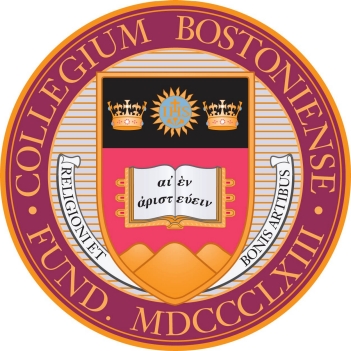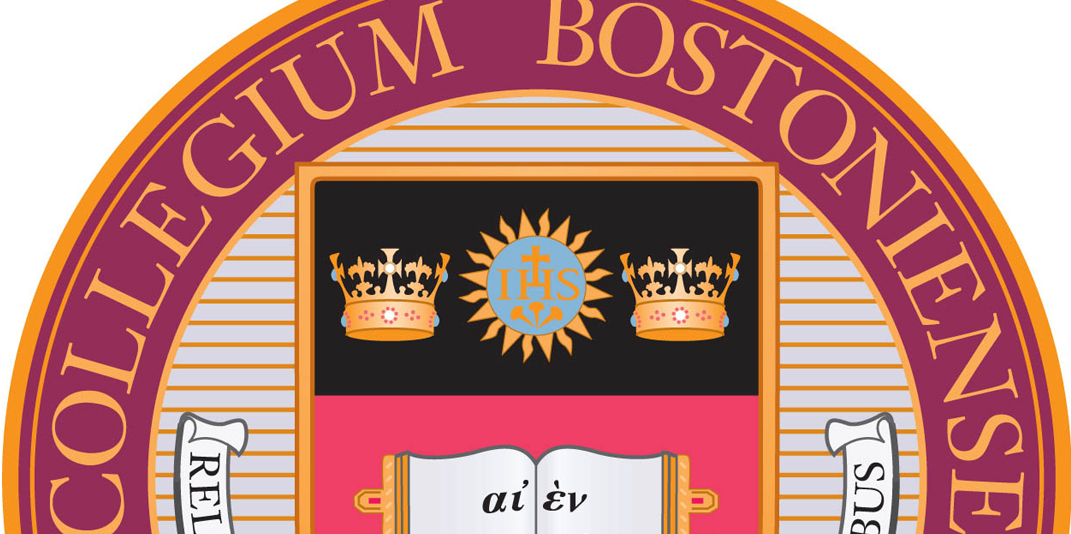
Boston College’s newly announced Strategic Plan took center stage at the 2017 University Convocation held Aug. 30 in Robsham Theater.
While they also discussed the influence of notable issues and trends on BC and higher education in general, University President William P. Leahy, S.J., Executive Vice President Michael Lochhead, and Provost and Dean of Faculties David Quigley each devoted part of their Convocation addresses to “Ever to Excel: Advancing Boston College’s Mission,” the 10-year Strategic Plan, which lays out four strategic directions for BC in academics, student formation, research and other areas.
Initiatives to support the four strategic directions include a new Institute for Integrated Science and Society, more endowed faculty positions, an emphasis on interdisciplinary study and collaboration, and upgraded facilities.
Describing “Ever to Excel” as “ambitious and focused,” Fr. Leahy said the Strategic Plan will help BC to “move forward with confidence and hope” and enable it to build on its heritage, opportunities, and commitments in the Jesuit, Catholic liberal arts educational tradition.
Fr. Leahy affirmed the importance of BC’s mission of intellectual, spiritual, and ethical formation at a time when “respectful dialogue” on immigration, race, sexuality, free speech, and religious beliefs has become increasingly difficult. He cited the recent march by white supremacists in Charlottesville, Va. – which he called “alarming, reprehensible, and in conflict with American ideals and values” – as an example of how “a small, fringe group can provoke violence and endanger the common good.”
As a Jesuit, Catholic university, Fr. Leahy said, BC faces a challenge represented by the global shift to greater secularization and less knowledge of or involvement in religious practices. More students come to BC seeking “meaning, purpose, and community in their lives,” but – lacking knowledge of the Christian mission or teachings of other religions – too often “are adrift in their lives.”
“Boston College must always be a place where people from varying backgrounds, experiences, and talents come together to grow as human beings, come to teach, research, inquire, learn, debate, sometimes disagree, and do so respectfully,” said Fr. Leahy, adding that it incumbent on administrators, faculty and staff “to model compassion and community, and help our students to have a moral compass that enables them to make sound decisions and lead healthy, productive lives.”
Lochhead highlighted several positive indicators in budget and finance areas – a $490 million increase in assets offsetting new debt of $245 million to finance construction, and an endowment performance that places BC in the top quartile of endowment returns tracked by Cambridge Associates – and praised strong management by the division of the Vice President for Finance and “all those who work so hard to steward the University’s resources.”
BC is well-positioned in terms of operating and capital resource capacity to support the goals of the Strategic Plan, Lochhead said – notably investments in academic programs and capital priorities – and will benefit from an improved integration of strategic, operational, and capital planning efforts.
Echoing Fr. Leahy’s remarks, Lochhead noted that, given current economic and political uncertainty, BC will need to closely assess factors affecting tuition and student fees, financial aid strategies, construction, and employment-related costs, among other areas.
He also reviewed the progress of major campus construction projects – such as the Connell Recreation Center, the athletic field house, Brighton Athletic Fields, and the Devlin Hall Admission and Visitor Center – and touched on future initiatives tied to the Strategic Plan, including construction of the Institute for Integrated Science and Society and increased formal and informal spaces to be used for student life and formation programs or activities.
Quigley – who, in his talk on “Ever to Excel,” said the plan affords opportunities for BC “to take even greater leadership in liberal arts education” – reported on a number of academic-related updates, including a successful site visit last March by a group of educators as part of BC’s 10-year reaccreditation, and the third year of the Core Curriculum renewal initiative.
He also noted that 46 percent of this year’s new faculty members are female, and – among new full-time and tenure-track faculty – 46 percent are AHANA. But such progress should not be a cause for complacency, he added: “It’s something we should focus on every year.”
—Sean Smith | University Communications




